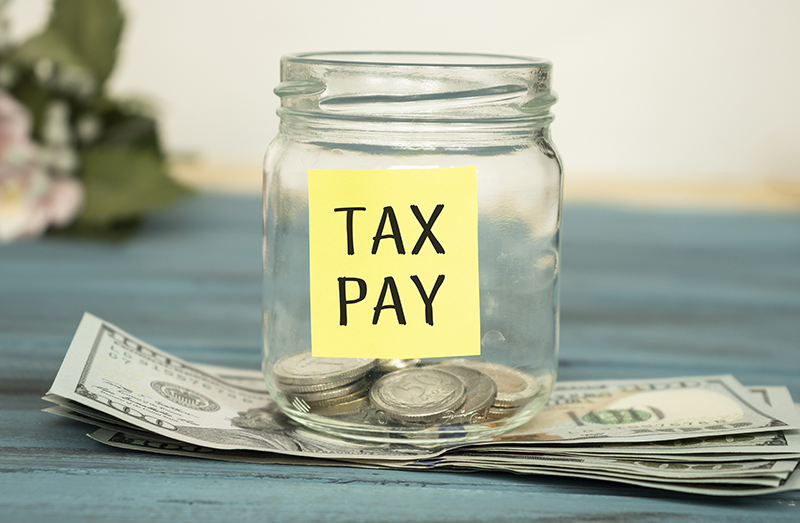The Internal Revenue Service (IRS) can collect back taxes for years up to 10 years from taxpayers who have not paid them in full.
The IRS also has the power to demand payment from taxpayers who owe money but have tried to avoid paying by cleverly pleading their case or by making changes to their tax filings. The IRS also has the power to levy a fine, which can be quite sizable.
What is the IRS?
The IRS is an organization that helps individuals and businesses collect back taxes. The IRS was created in 1913 as a way to help people who were under the wrong impression that the government wouldn’t help them with their taxes.
The IRS has many different programs to help individuals and businesses collect back taxes, including the IRC, which is the main program that helps people collect back taxes.
Different Types of Taxes the IRS Collects
The IRS has a variety of taxes they collect, and they can take different lengths of time to return your taxes. Here are the most common taxes the IRS collects:
1. Income Tax: This tax is collected on taxable income. The IRS can take a number of different forms of interest, penalties, and interest.
2. Sales Tax: This tax is collected on sales made within the United States. The IRS can also collect excise taxes from some types of goods and services.
3. Corporate Income Tax: This tax is collected on profits made by companies in the US. The IRS can also charge additional fees for doing business with foreign companies.
4. Estate Tax: This tax is collected on estates that were created before January 1st, 1961.
If you are dying and your estate is worth over $3,000,000, the IRS can tax your estate at a rate of 40% on the value.
How Long Can the IRS Collect Back Taxes?
The Internal Revenue Service (IRS) varies its stance on when it can and cannot collect back taxes. In general, though, the IRS believes that it should be able to collect back taxes within a certain timeframe after a taxpayer provides accurate information and responds to any questions.
However, the IRS may not always be able to do so. For example, if a taxpayer does not respond to repeated requests for information or if they file an incorrect return, the IRS may believe that they have failed to meet their statutory due diligence obligations.
In this case, the IRS may not be able to collect back taxes within the timeframe required. This is true even if the IRS has a legitimate reason for its delay in collecting back taxes.
Tips to Get Your Refund as Soon as Possible
The Internal Revenue Service (IRS) has a lot of guidlines regarding refunding taxes.
In general, however, the IRS does not forgive past mistakes, and refunds may only be issued if there is a legitimate reason for the delay in receiving the tax return or if the individual can prove that they were wrongly treated.
In order to ensure that you get your refund as soon as possible, follow these simple tips:
1. Get started on your return as soon as possible: The sooner you start taking steps to prepare your return, the less time you have to wait for your refund.
2. Make sure that you have all the necessary documents needed for your return. In order to properly prepare your tax return, it is important to make sure you have all of the necessary information.
This includes, but is not limited to, your Tax ID/EIN (if applicable), the amount of tax you owe and the reason for your refund.
3. Send your tax return to the address stated on your W-2 or 1099 form.
4. You should receive a response from the IRS within 10 business days of receiving your tax return.
Consequences of not Filing a Tax Return
When it comes to taxes, it’s always important to be accurate and file your taxes as soon as possible. However, not filing a tax return can have large consequences for you in the long run.
1. If you don’t file your tax return, the IRS can demand back some of your money that was paid into the system as well as other penalties. In addition, if you owe money to the IRS, they may also pursue legal action against you.
2. Additionally, if you don’t timely file your returns or make mistakes with your paperwork, you could end up paying additional fines and interest on top of anything else that may have been assessed by the IRS.
3. If you’re in the process of removing some or all of your child or dependent from the home, making sure you file a tax return is an important step.
4. If you don’t file a tax return and the IRS demands it, they will determine whether the tax was owed. If you owe money to the government, they may levy some of your assets (assets that can be seized by law enforcement) to pay off the debt.
5. They may also require you to pay back taxes that you didn’t owe. There are a number of ways in which you can avoid paying taxes, or even if you do have to pay some, it’s very important that you do so correctly.
Conclusions
In the past, the IRS has been able to collect back taxes from individuals and businesses for a period of many years. However, recent changes have made it more difficult for the IRS to collect back taxes from individuals and businesses.
These changes include the implementation of new regulations known as the Tax Cuts and Jobs Act (TCJA). As a result, the IRS is having difficulty collecting back taxes from individuals and businesses who have already paid their taxes.
This has resulted in some taxpayers feeling that they are not being treated fairly by the IRS and are seeking legal help to try to get their money back.
